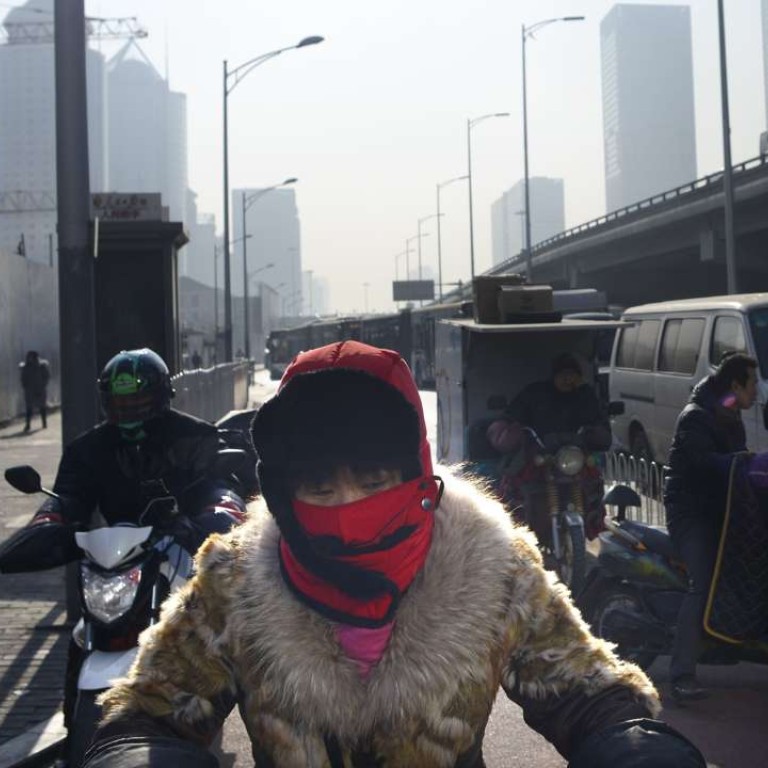
Startups scramble to become China’s pedal-powered Uber
Fierce competition expected for market share as many app providers seek to attract investors for funding as well as customers looking to pedal that last kilometre
Following growth in the car-hailing market, bike-sharing apps are becoming next big thing in China’s sharing economy as growing startups backed by venture capitalists and technology giants have flocked into the battle to be Didi or Uber for bikes.
Fierce competition is expected for market share next year, with bike-sharing business entrants also facing potential obstacles from polluted air and security issues, industry insiders and analysts say.
Shanghai-based bicycle rental platform YouBai, established in July, last week said it had raised 100 million yuan (HK$111 million) in its third-round financing from several domestic investors led by Black Hole Capital, according to the 21st Century Business Herald. In September, the company raised 150 million yuan in A round financing and 10 million yuan in its angel round from several domestic investors and local state-owned enterprises.
Bluegogo, another bike-sharing application backed by bike manufacturer SpeedX, also said last week that it would close financing of several dozens of millions US dollars by the end of this month, the Herald report said. Late last month SpeedX had completed the 150-million-yuan round of funding, and part of the money would be invested on Bluegogo.
In September, three other Chinese startups - Mobike, oFo and XiaoMing Danche, also raised funding of between 10 million yuan and US$100 million.
Colours are running out for those bike-sharing startups’ bikes across China’s cities – Mobike in orange, oFo in yellow, ekuaitu and Youbai in green, Bluegogo in blue, hellobike in white and Qibei in grey - as much of the investment optimism in the sector stems from the huge untapped potential in the “last kilometre short trip” market focusing on students and urban commuters.
IDC senior analyst Xue Yu said the bike-sharing market players’ fortunes would divide next year, as happened in the car-hailing market two years ago. Mobike and oFo, two of the apps with heavy investments and currently market leaders, would expand across the country while other followers would find it hard to lure further investments.

Mobike, which received US$100 million as Series C financing from investment companies like Sequoia Capital and Hillhouse Capital, is offering services in five cities - Shanghai, Guangzhou, Beijing, Shenzhen and Chengdu - with plans to launch 100,000 bicycles in each city by the end of this year.
Didi-backed oFo had 85,000 bikes shared every day by more than two million users in 21 cities across China, according to mainland media.
Xue said just a few million young people had started using these apps at first- and second-tier cities so far but the market would develop rapidly as each city had a huge population of more than 10 million people.
The players all follow a similar business model, charging digital cash with popular mobile payment methods such as Alibaba’s Alipay and Tencent’s WeChat for certain minutes of usage, along with security deposit between 200 and 300 yuan.
Xue said with the investments and deposits from growing numbers of users, the operators could launch more bikes to compete for more market share. The bikes - equipped with solid tyres, adjustable seats, triangular handlebars and front and rear braking systems - usually cost about 2,000 yuan each.

Youbai founder Yu Yi told technology website tmtpost.com that the bike-sharing business was asset-heavy and demanded a large sum of capital to operate. The report said every industry insider was still in the early stages, investing heavily to build up offline operations and manufacturing supply, but not profitable.
Wang Chenxi, a senior analyst at Beijing-based consultancy Analysys, said none of the startups had any significant advantages that put them above the others in China’s bike-sharing business.
Trust and air pollution were two more issues for bike-sharing app operators in China. Many bikes had been lost or damaged soon after being launched, which was costly for a services such as Mobike and oFo.
It is unwise to ride a bike when serious smog shrouds a city, as often happens in cities like Shanghai and Beijing.
According to a report released by iiMedia Research, the market for China’s bike-sharing would reach 54 million yuan with more than four million users overall in the short term. By 2019, the market would grow to 163 million yuan with more than 10 million users.

